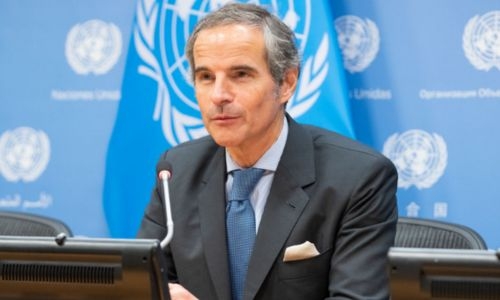UN nuclear watchdog board criticises Iran for ‘lack of cooperation’
AFP | Riyadh, Saudi Arabia
The Daily Tribune – www.newsofbahrain.com
The International Atomic Energy Agency’s 35-nation board of governors has passed a resolution criticising Iran’s lack of cooperation with the UN nuclear watchdog, three diplomats said yesterday.
The motion brought by Britain, France and Germany - but opposed by China and Russia - is the first of its kind since November 2022 and comes amid an impasse over Iran’s escalating nuclear activities.
Western powers fear Tehran may be seeking to develop a nuclear weapon, a claim Iran denies.
Votes
The resolution was carried by 20 votes in favour - including the United States, which initially was reluctant for fear of aggravating Middle East tensions - with 12 abstentions and one country not participating, diplomats told AFP.
The confidential document obtained by AFP reiterates it is “essential and urgent” that Tehran provide “technically credible explanations” for the presence of uranium particles found at two undeclared locations in Iran.
“A continued failure” by Iran to provide full cooperation on the years-long probe “may necessitate” a comprehensive assessment by IAEA chief Rafael Grossi, the text said.
- ‘Devoid of any legal basis’ -
The resolution also says Iran has to “reverse its withdrawal of the designations of several experienced Agency inspectors”, and “without delay” reconnect the cameras used to monitor nuclear activities.
The text also notes the “concerns” surrounding “recent public statements made in Iran... regarding its technical capabilities to produce nuclear weapons and possible changes to Iran’s nuclear doctrine”.
Following intense negotiations with the US, the resolution was modified to secure Washington’s support.
Censure motion
Although symbolic in nature at this stage, the censure motion aims to raise diplomatic pressure on Iran, with the option to potentially refer the issue to the UN Security Council.
In the past, similar resolutions have prompted Tehran to retaliate by removing surveillance cameras and other equipment from its nuclear facilities and ratcheting up its uranium enrichment activities.
Tehran, which has already threatened “a serious and effective response, slammed the censure motion as “devoid of any legal, technical and political basis”.
Related Posts

